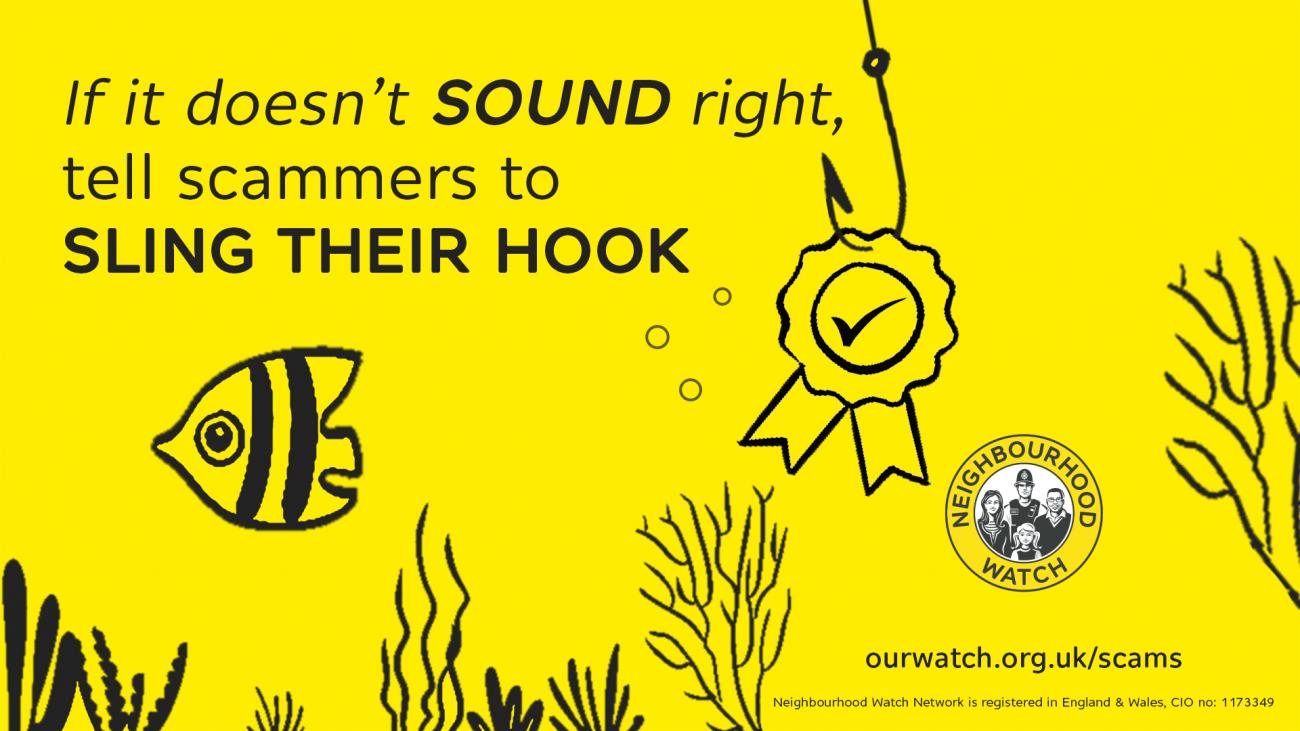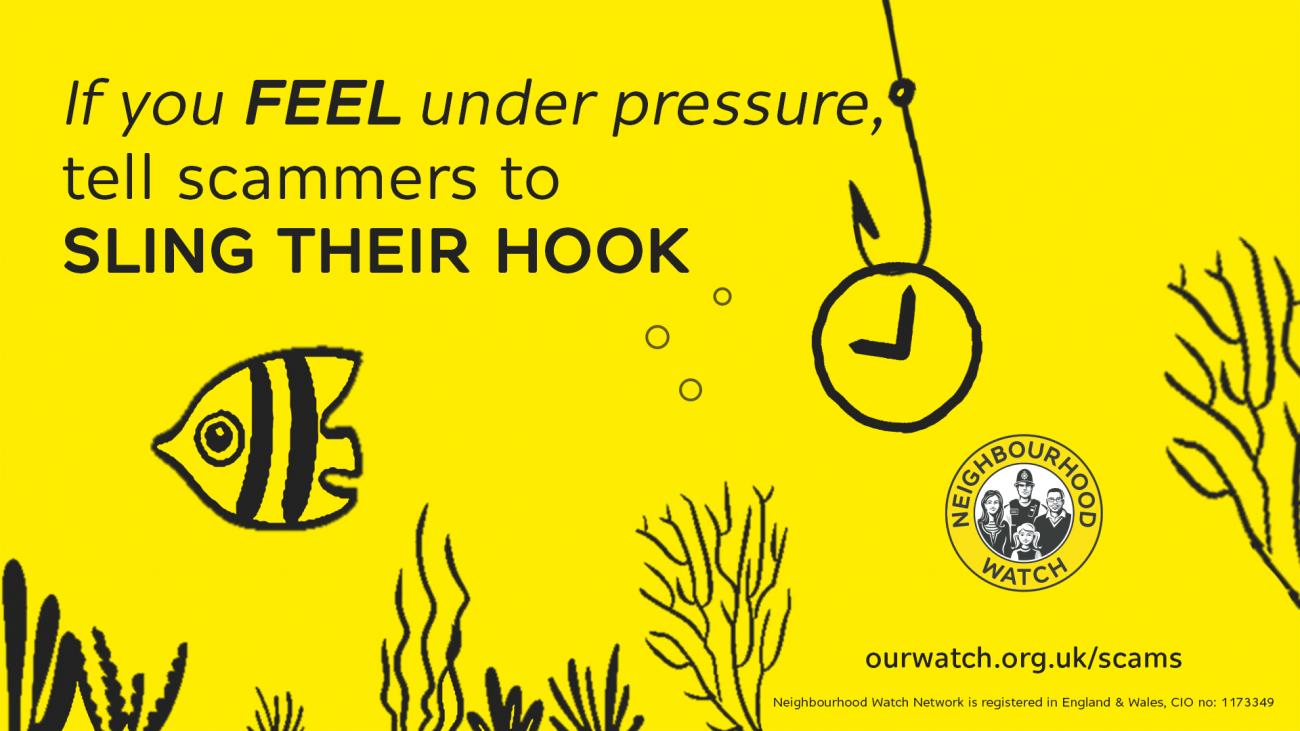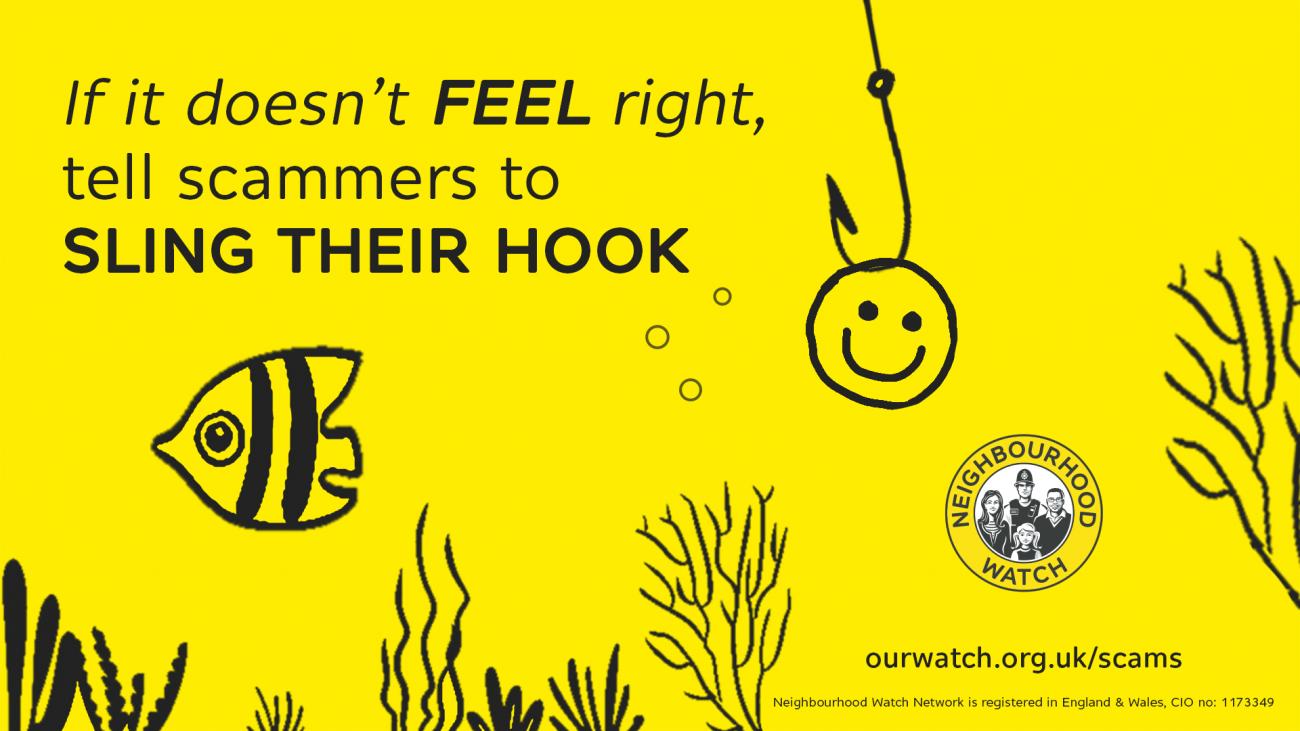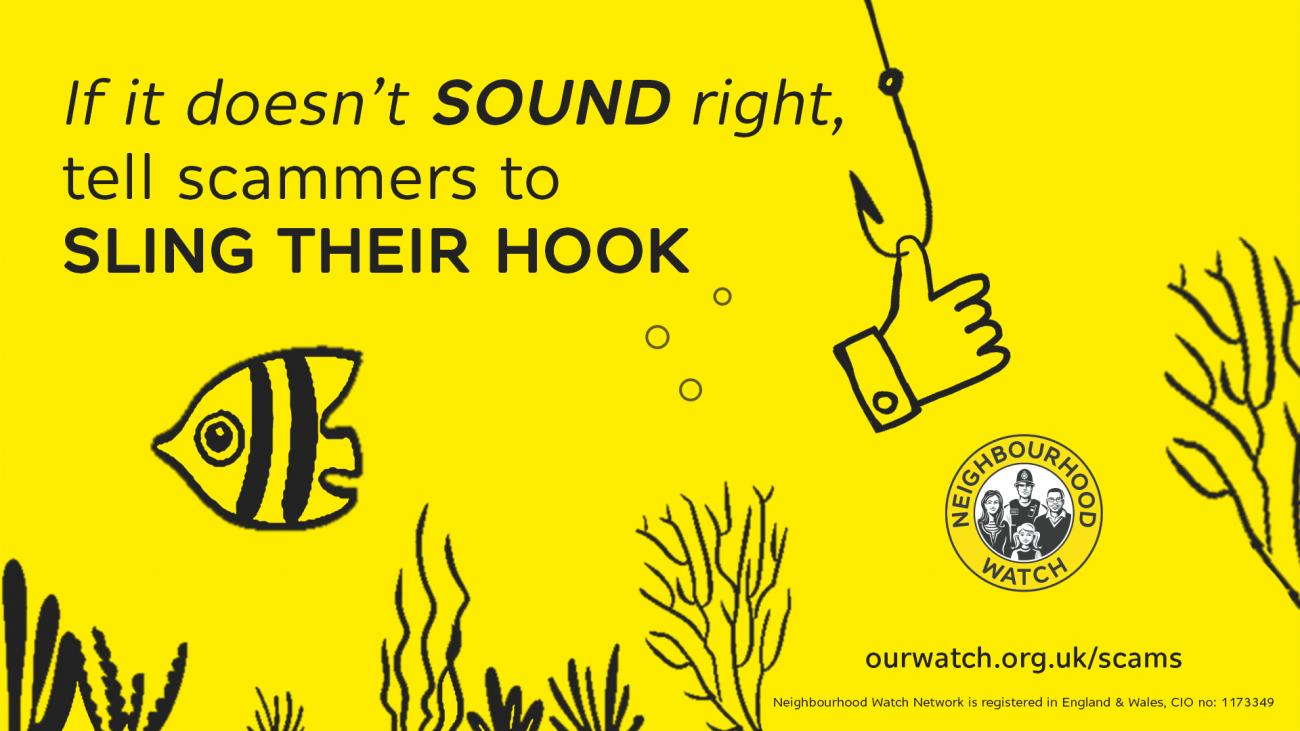We’ve looked at the psychology around why people fall victim to scams to help people protect themselves against the huge number of daily scams. We know that victims of scams often report that, in hindsight, they felt something wasn’t quite right. We are raising awareness of scammers' tactics and encouraging you to tell them to 'sling their hook' if something doesn’t FEEL, SEEM, LOOK or SOUND right.
We’ve identified five tactics that scammers use to hook people in. Knowing these tactics will help you stay one step ahead and protect yourself and your loved ones against the increasing variety of scams that are happening daily.
RECIPROCITY Image

They imply they’re doing you a favour | SOCIAL PROOF Image

They indicate everyone else is doing this |
URGENCY Image

They say your only chance is to act now | CONNECTION Image

They act like they’re similar to you so you like them and want to please them |
COMMITMENT Image

They ask you to do one little thing which makes you do more |
Any of us can be caught out by scammers. They deliberately target our better natures and use psychological tactics, like being overly friendly or pretending to do you a favour, making you a limited-time offer, telling you everyone else has done something or trapping you into doing little tasks for them. If you sense something’s not quite right, give a clear, firm “no”. Politeness and fear of offence can make us more vulnerable – so we want to tell people it’s ok to be firm in telling scammers you are not interested.
John Hayward-Cripps, CEO of Neighbourhood Watch Network
Common scams
Want to learn more? Click here to discover more about different types of scams and terminology.
Take Five to stop fraud
Criminals are experts at impersonating people, organisations and the police. They spend hours researching you for their scams, hoping you’ll let your guard down for just a moment. Stop and think. It could protect you and your money.
- STOP: Taking a moment to stop and think before parting with your money or information could keep you safe.
- CHALLENGE: Could it be fake? It’s ok to reject, refuse or ignore any requests. Only criminals will try to rush or panic you.
- PROTECT: Contact your bank immediately if you think you’ve fallen for a scam and report it to Action Fraud.
Click here to learn more about protecting against doorstep, mail, online, pension and investment, phone, or romance scams.
Click here [https://www.avast.com/uk-cyberhood#pc] to learn more about protecting yourself from cybercrime and online scams through our Cyberhood Watch initiative in partnership with Avast.
Reporting scams
Anyone can become a scam victim. If you, or someone you know, has been a victim of scams find out how to report it here.
We have teamed up with Avast to create Cyberhood Watch. This initiative will help people learn more about the cybersecurity risks that exist every time we go online and discover which regions of the UK are the most at risk.
From phishing to viruses to ransomware, this community-led awareness programme looks at the impact cybercrime can have on our everyday lives, and provides simple tips on the steps we can take to protect ourselves, our friends and family, and our local community. Click here to see cybercrime insights and a cybercrime toolkit with a wide range of easy-to-follow, useful guides.

Scams campaign toolkit
To help you spread the word about scams and how people can avoid falling victim to them, we’ve compiled a range of free campaign materials, including the SLING YOUR HOOK campaign resources, that you can use to educate and inform people in your neighbourhood. Click here to see our scams campaigning toolkit.
What is a scam?
Scams (a slang term for personal fraud) are crimes where the perpetrator tries to swindle the victim out of money or out of personal information to steal their money later.
Almost 500,000 consumer fraud cases were recorded in the UK over the last 13 months, with a reported loss of £2.5 billion. Scammers are becoming more sophisticated and using a wide range of platforms, so more and more people are being caught out, especially via online shopping, personal banking, and investment fraud scams.
As lockdown eases, ticket and holiday fraud are now particularly prevalent. Another recent scam sees victims contacted via email and/or text after receiving the Covid-19 vaccine and being asked to take a fake post-vaccine survey with the promise of a cash prize. There’s also been a significant increase in delivery company branded ‘smishing’ (SMS fraud), with scammers asking customers to click a link to reschedule deliveries or pay incomplete shipping charges.
